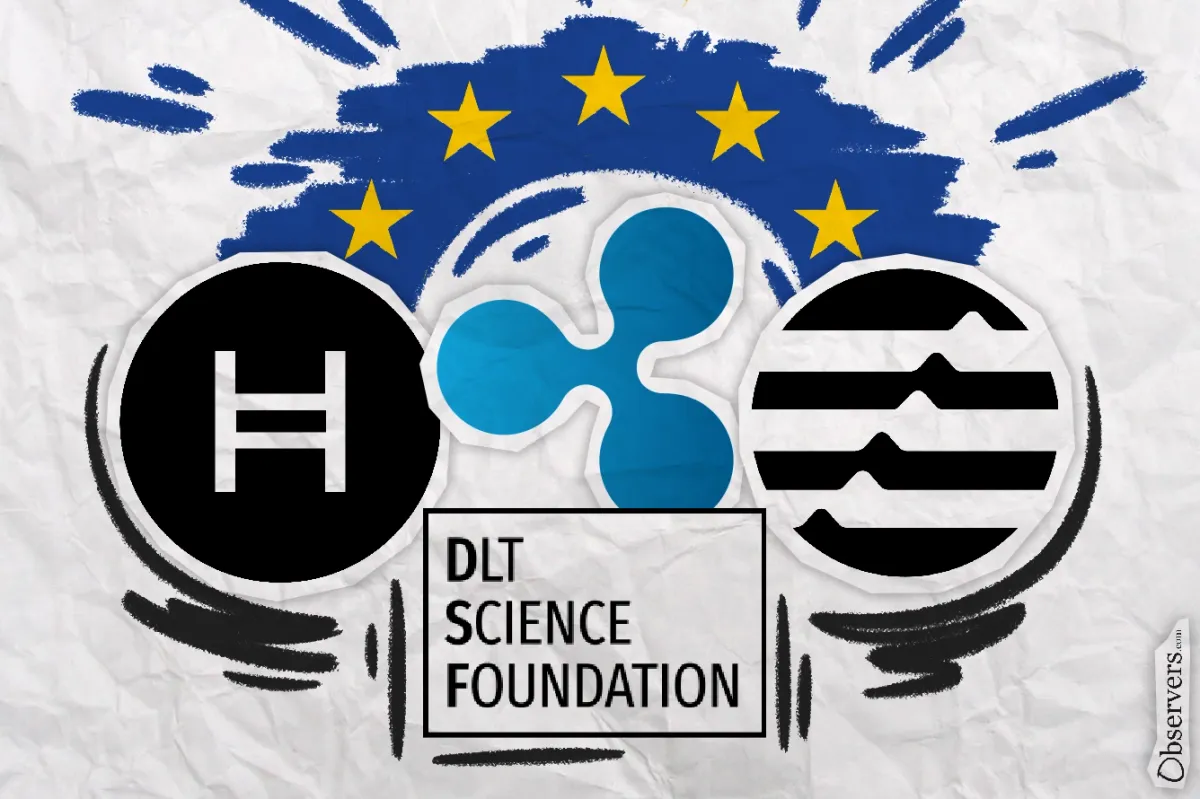
The DLT Science Foundation (DSF) announced on Monday its support for the newly formed MiCA Crypto Alliance, a group aimed at streamlining compliance with the European Union's upcoming Markets in Crypto-Assets (MiCA) regulation. The alliance, which includes blockchain heavyweights Hedera, Ripple, and the Aptos Foundation as founding members, seeks to establish industry standards for sustainability disclosures required under the new rules.
Set to be fully implemented by year-end, MiCA has introduced a comprehensive regulatory framework for the crypto market in the EU, mandating transparency, consumer protection, and market integrity measures. As part of the EU's broader effort to regulate digital assets, the new regulation aims to provide much-needed clarity for the European market and create a more secure environment for cryptocurrency assets.
 Observing moneytech and Web3Sasha Markevich
Observing moneytech and Web3Sasha Markevich
The DLT Science Foundation (DSF) is an organization dedicated to advancing research and development in distributed ledger technologies, such as blockchain. It plays a crucial role in fostering the growth and adoption of decentralized technologies by offering educational resources, technical guidance, and compliance support for blockchain projects. DSF collaborates with industry leaders, academic institutions, and regulatory bodies to promote best practices and the responsible development of decentralized systems.
A key aspect of MiCA requires Crypto-Asset Service Providers (CASPs), including centralized exchanges, to disclose the climate impact of their operations through public white papers and website descriptions. However, the absence of official templates for these disclosures has raised concerns about potential non-compliance risks.
As the technical partner of the MiCA Crypto Alliance, DSF will provide technical support, such as exclusive sustainability indicators and AI-powered white paper generation tools, to help crypto firms efficiently meet MiCA requirements and uphold a high standard of compliance across the industry. Dr. Paolo Tasca, Founder and Chairman of DSF, said:
"MiCA represents a significant step towards mass adoption of digital assets and decentralized technologies. We are committed to setting the standards for compliance and providing projects with the tools and knowledge they need to thrive in this new landscape."
The formation of the MiCA Crypto Alliance comes as the crypto sector braces for increased regulatory scrutiny and rising compliance costs. A 2023 PwC survey titled 'Rebuilding confidence in crypto' states that over a third of crypto hedge funds expect higher legal and compliance expenses in the near future. These costs are driven by both market volatility and stricter regulations following the several high-profile crypto collapses in 2022. The report also notes that over half of these funds have enhanced their risk management practices.
Prof. Dr. Dr. h.c. Roman Beck, from the MiCA Alliance and European Blockchain Center, highlighted that as the blockchain and crypto sectors evolve, transparency, compliance, and security are increasingly vital. He made clear that the MiCA Crypto Alliance addresses a key regulatory gap, helping organizations meet these demands while fostering trust between regulators and the market. He also noted that this collaboration will support "a more sustainable and scalable future for the industry."
As the crypto industry continues its rapid evolution, global regulatory bodies are increasingly recognizing the need for solid frameworks addressing transparency, investor protection, and cybersecurity concerns.

